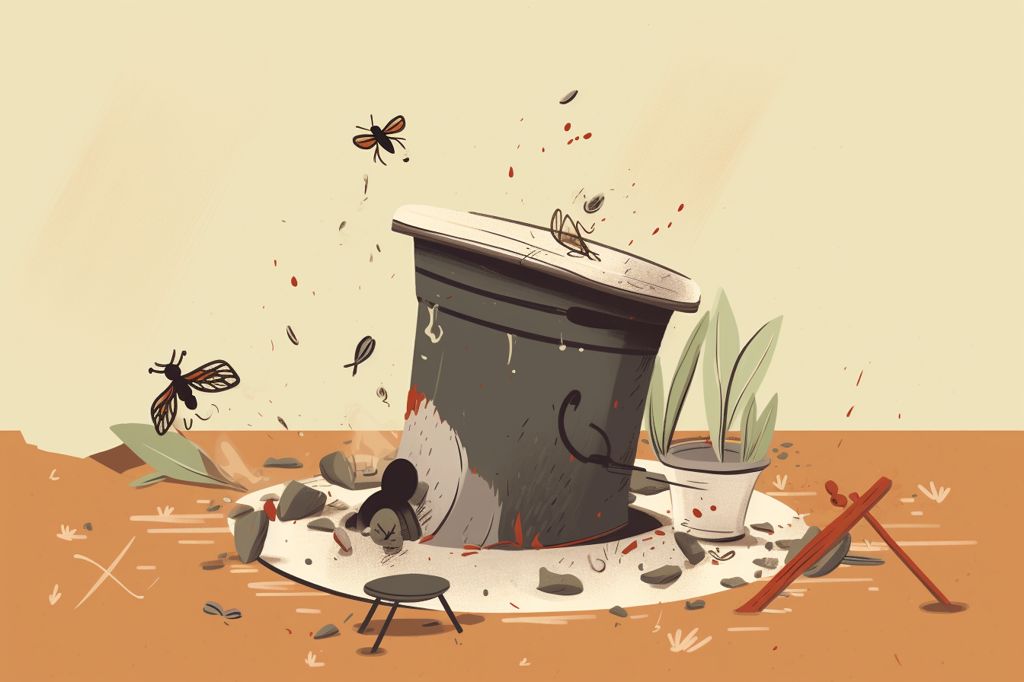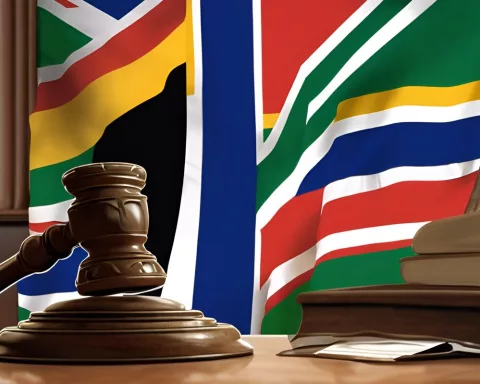Around 500 refugees, including 200 children, live in dire conditions at the Bellville Paint City camp in Cape Town.
Refugees’ Plea for Resettlement
These refugees started protesting outside the UNHCR offices in Cape Town and Pretoria in October 2019. They are pleading for resettlement in any country other than South Africa due to fear of violence, looting, and kidnapping. Many, like Francine Nduwimana, refuse to return to local communities.
Deteriorating Conditions
The situation at the Bellville camp has been continuously deteriorating over time. Since November of last year, the center has been without toilets and showers since 2020. As a result, the refugees have been forced to resort to makeshift bathrooms, worsening unsanitary conditions.
Removal of Mobile Toilets
Mobile toilets were removed from the camp in March due to complaints about them being full and smelly. This has led to even worse sanitary conditions for the refugees, with Nduwimana pointing out the harmful effects on women’s and children’s health.
Call for Intervention
Albert Luninga, the group’s representative, calls on the UNHCR to intervene and rescue the refugees at the Bellville camp. He emphasizes the refugees’ legitimate reasons for not wanting to return to their local communities, as they have faced kidnapping, extortion, and looting of their businesses.
Government Response
However, Siyabulela Qoza, the spokesperson for Home Affairs, states that the toilets were removed after threats of damage and intimidation were made to the maintenance staff. Qoza explains that the refugees must either reintegrate into their previous communities or return to their home countries.
UNHCR’s Position
Laura Padoan, the UNHCR spokesperson, clarifies that the agency did not participate in any discussions regarding the eviction of protesters from Paint City or Wingfield. Padoan notes that the UNHCR initially provided toilets at the camp until the local authorities took over site management. The UNHCR encourages refugees to return to local communities and rebuild their lives.
Help Desk for Asylum-Seekers
To assist refugees and asylum-seekers who wish to return to their countries of origin, the UNHCR has established a help desk that offers confidential advice and counseling services. So far, 67 people have voluntarily returned to Burundi, one to Cote d’Ivoire and one to the Republic of Congo.
In conclusion, the living conditions at the Bellville Paint City camp for refugees have continued to deteriorate, with the removal of mobile toilets and the absence of proper sanitation facilities. As a result, the refugees call for intervention from the UNHCR, while the government urges them to reintegrate into their previous communities or return to their home countries. Meanwhile, the UNHCR provides counseling services and encourages asylum-seekers to rebuild their lives.












